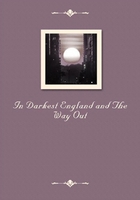
第127章 A PRACTICAL CONCLUSION.(11)
"These poor people were generously paid for their labour,but something more than cash payment was necessary.There was needed the feeling of emulation,the desire to excel,the sense of honour,the love of glory.
Not only pay,but rewards,prizes,distinctions,were given to the more deserving.Peculiar care was taken with the children.They were first paid simply for being present,idle lookers-on,until they begged with tears to be allowed to work.'How sweet those tears were to me,'says Count Rumford,'can easily be imagined.'Certain hours were spent by them in a school,for which teachers were provided.
"The effect of these measures was very remarkable.Awkward as the people were,they were not stupid,and learned to work with unexpected rapidity.More wonderful was the change in their manners,appearances and the very expression of their countenances.Cheerfulness and gratitude replaced the gloom of misery and the sullenness of despair.
Their hearts were softened;they were most grateful to their benefactor for themselves,still more for their children.These worked with their parents,forming little industrial groups,whose affection excited the interest of every visitor.Parents were happy in the industry and growing intelligence of their children,and the children were proud of their own achievements.
"The great experiment was a complete and triumphant success.When Count Rumford wrote his account of it,it had been five years in operation;it was,financially,a paying speculation,and had not only banished beggary,but had wrought an entire change in the manners,habits,and very appearance of the most abandoned and degraded people in the kingdom.""Are the poor ungrateful?Count Rumford did not find them so.When,from the exhaustion of his great labours,he fell dangerously ill,these poor people whom he had rescued from lives of shame and misery,spontaneously assembled,formed a procession,and went in a body to the Cathedral to offer their united prayers for his recovery.When he was absent in Italy,and supposed to be dangerously ill in Naples,they set apart a certain time every day,after work hours,to pray for their benefactor.After an absence of fifteen months,Count Rumford returned with renewed health to Munich--a city where there was work for everyone,and not one person whose wants were not provided for.When he visited the military workhouse,the reception given him by these poor people drew tears from the eyes of all present.A few days after he entertained eighteen hundred of them in the English garden--a festival at which 30,000of the citizens of Munich assisted."
THE CO-OPERATIVE EXPERIMENT AT RALAHINE,"The outrages of the 'Whitefeet,''Lady Clare Boys,'and 'Terry Alts'
(labourers)far exceeded those of recent occurrence;yet no remedy but force was attempted,except by one Irish landlord,Mr.John Scott Vandeleur,of Ralahine,county Clare,late high sheriff of his county.
Early in 1831his family had been obliged to take flight,in charge of an armed police force,and his steward had been murdered by one of the labourers,having been chosen by lot at a meeting held to decide who should perpetrate the deed.Mr.Vandeleur came to England to seek someone who would aid him in organising the labourers into an agricultural and manufacturing association,to be conducted on co-operative principles,and he was recommended to Mr.Craig,who,at great sacrifice of his position and prospects,consented to give his services.
"No one but a man of rare zeal and courage would have attempted so apparently hopeless a task as that which Mr.Craig undertook.Both the men whom he had to manage--the Terry Alts who had murdered their master's steward--and their surroundings were as little calculated to give confidence in the success of the scheme as they well could be.
The men spoke generally the Irish language,which Mr.Craig did not understand,and they looked upon him with suspicion as one sent to worm out of them the secret of the murder recently committed.He was consequently treated with coldness,and worse than that.On one occasion the outline of his grave was cut out of the pasture near his dwelling,and he carried his life in his hand.After a time,however,he won the confidence of these men,rendered savage as they had been by ill-treatment.
"The farm was let by Mr.Vandeleur at a fixed rent,to be paid in fixed quantities of farm produce,which,at the prices ruling in 1830-31,would bring in #900,which included interest on buildings,machinery,and live stock provided by Mr.Vandeleur.The rent alone was #700.
As the farm consisted of 618acres,only 268of which were under tillage,this rent was a very high one--a fact which was acknowledged by the landlord.All profits after payment of rent and interest belonged to the members,divisible at the end of the year if desired.
They started a co-operative store to supply themselves with food and clothing,and the estate was managed by a committee of the members,who paid every male and female member wages for their labour in labour notes which were exchangeable at the store for goods or cash.
Intoxicating drink or tobacco were prohibited.The committee each day allotted each man his duties.The members worked the land partly as kitchen garden and fruit orchards,and partly as dairy farm,stall feeding being encouraged and root crops grown for the cattle.Pigs,poultry,&c.,were reared.Wages at the time were only 8d per day for men and 5d.for women,and the members were paid at these rates.